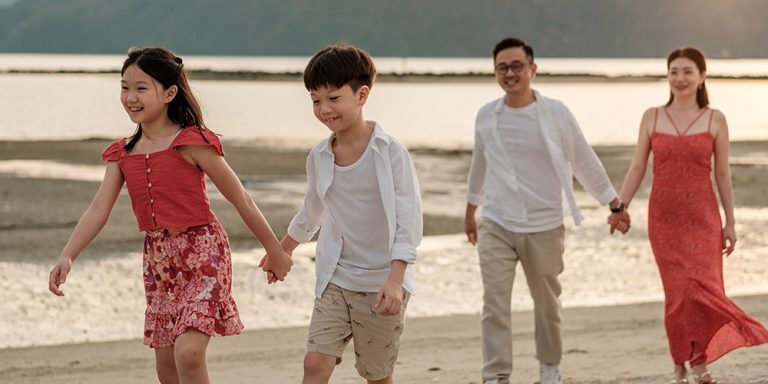Here is a recent incident.
I have two children, an 11-year old daughter and a 9-year old son. Both of them have an iPad each and they are playing an online game together via Roblox. The game involves its players to acquire and amass “gems”, which acts as a currency that can be exchanged for various game advantages. So after some time playing this game, let’s say, both my children have accumulated 100 gems each.
Son: 100 gems.
Daughter: 100 gems.
Lately, my son’s iPad malfunctioned. Thus, I sent his iPad to its Service Center to have it fixed. My son believed that his 100 gems would be “wiped out”. So, he’d decided to transfer his 100 gems to his sister’s game account for safekeeping. In doing so, he trusts that his sister will return the 100 gems once his iPad is fixed.
Son: 0 gems.
Daughter: 200 gems (100 gems + brother’s 100 gems).
As my son’s iPad was being fixed, my daughter continued to play this game with 200 gems. She went on acquiring and spending on these gems along the way. In weeks, the amount of gems she had was different from 200. She jumbled up on her “gems” account. Soon, my son wanted the 100 gems to be returned back to him. Of which, my daughter had refused and offered a partial return instead. As a result, they argued and quarreled.
Son: Gimme back my 100 gems.
Daughter: Don’t want to. How about I return 50 gems?
Eventually, after sitting down with them, I learnt the truth. My daughter agreed to return the 100 gems to her brother in full. Case closed.
So, what does the above have to do with establishing a trust?
A lot. Let’s examine together. From above, we can see a trust structure formed:
- My son is the settlor of the trust (original owner of his 100 gems).
- He is also the sole beneficiary of the trust.
- His sister is his trustee (entrusted to safeguard the 100 gems).
- Trust period = the time taken to fix my son’s iPad.
- Trust deed = retain 100 gems and return them once his iPad is fixed.
Upon receipt, his sister had:
- Mixed up her 100 gems with her brother’s 100 gems.
- Used them all to continue playing her game.
- Refused a full return of 100 gems to her brother (beneficiary).
Think about it. Assuming that you and your wife have RM 1 million and a kid. As parents, you both intend to set aside this sum for your child’s tertiary education fees. If both of you pass on prematurely (eg. iPad malfunctioned), you intend to entrust a family member (brother, sister, father, mother … etc) the RM 1 million and instruct him or her to use that money only to pay for your child’s education fees in the future. The family member you picked agreed to do so and thus, you wrote that down in your Will.
Hence, the trust structure is as follows:
- You and your wife are the Testator (original owner of RM 1 million).
- Your child is the beneficiary.
- Family member is the trustee.
- Trust period = Up till your child enrolls himself in a university.
- Testamentary Trust in Will = retain RM 1 million until he enrolls in a university.
So now, let’s say both you and your wife pass on and the RM 1 million had been transferred to the appointed family member. So, the question is: ‘Will he follow and fulfill your wishes accordingly?’.
Here is my take – The answer is “Yes, he could.” But, there are many possibilities that this appointed family member could not do so. Upon receipt, he or she can emulate (my daughter) and do the following:
- Jumbled up the RM 1 million entrusted with his personal wealth.
- Used them for many other purposes.
- Refused a full return of RM 1 million to your child.
The “many other purposes” stated above many include:
- Investments (could succeed or fail subject to market forces).
- Venturing, salvaging, or closing of businesses.
- Medical emergencies (related or unrelated to your child).
- Repayment of his own personal debts (car loan, mortgages … etc).
- Lawsuits.
- Luxurious spendings (holidays, gadgets, cars, houses, renovations).
- Education fees to his or her own children.
- and so on and so forth.
If so, he or she would fail to fulfill your intent for your RM 1 million. There is not much your child can do to “fight for his or her rights” for he or she doesn’t have or may not have the necessary ability, resources and willpower to do so.
Also, there is one more issue to consider: What if the family member appointed passes away shortly after receiving the RM 1 million entrusted? So who shall be inheriting this sum of money? Would it be your child? Or, could it be the next of kin (family members) apart from your child? That would be a complex matter. It is best not to get into that sort of situation as it is very messy.
Now, what if you and your wife appoint a trust company instead? Is this better?
Well, I believe it is more practical if the size of assets to be entrusted is larger. In comparing the ability to fulfill financial objectives, trust companies have several advantages as follows:
- The RM 1 million is placed under a separate account (not mixed up).
- They follow strict regulations and are audited.
- Their choices of investments are limited to the Trustee Act 1949.
- They are highly experienced.
- They don’t fall sick, have dementia, or pass away like individuals.
First, trust companies maintain two separate accounts: One for its operations & One for its clients. If a trust company winds up, goes bust or is bought over by a new owner, the client’s account would still remain active. The RM 1 million that you entrusted would still be around. It doesn’t evaporate.
Second, the investment vehicles trust companies could select are restricted to a list given by Section 4(1) of the Trustee Act 1949. This is meant to safeguard the capital entrusted to the trust companies.
Third, trust companies had accumulated years or decades of real experiences in handling multiple estate planning issues. Hence, operations or processes would be smoother. If a family member is appointed as a trustee, he or she quite likely would not have the necessary energy, knowledge, resources … etc to expedite / execute his duties as a trustee as effectively as trust companies.
So in conclusion, do I have to select trust companies to be my trustee?
Not yet. The above is written to explain the issues that your beneficiaries might encounter if family members are appointed to be trustees and to list down how trust companies could resolve these issues. With that, they would charge fees. I would say that a more practical approach is to:
- Assess your current financial standings.
- Understand your intentions and the needs of your beneficiaries.
- Know the fee structure charged by trust companies
(range: 0.5%-1.5% a year depending on individual trust companies) - Work on a specific plan to fulfill your objectives cost-efficiently.
So here, you could start off by filling up your details below to book yourself a 30-minute consultation session with our highly professional estate planners:




